Have you noticed grass growing in clumps in your lawn?
If so, then chances are, you have some grassy weeds mixed in with the rest of your turf. This can be a hassle as grassy weeds are an ugly eyesore that can take away from the overall appearance of your lawn.
There’s no question that many of the grassy weeds found in lawns are difficult to control—some more so than others. But there are some solutions out there.
To help educate you on what you might be dealing with, we’ve rounded up eight of the most common culprits.
Orchardgrass
Orchardgrass is a clump-forming, cool season grassy weed that is characterized by its light bluish/greenish color and rough texture.
It can be found in shade-like areas and tends to grow more quickly than the surrounding turf, which is why you may notice it poking out above the rest of your lawn.
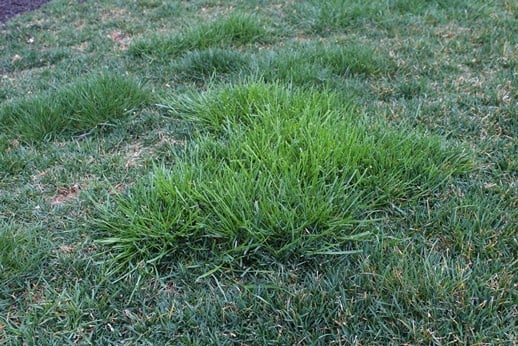
This grassy weed is a problem in the spring and remains mostly a seasonal issue. If you have Orchardgrass, it’s going to look the worst in the springtime when it won’t blend well with the surrounding turfgrass due to a variation in texture and color.
If you only have a couple of patches of Orchardgrass, thickening your lawn may be enough to tolerate the grass growing in clumps. Typically it’s not a widespread issue. However, if it’s an extreme case or you can’t tolerate your grass growing in clumps, you could talk to a professional about additional steps.
In very severe cases, non-selective herbicide could be applied to kill the orchardgrass, but it’s going to kill the surrounding healthy grass as well. You’ll then need to re-seed for several seasons.
This also will not eliminate any dormant seeds in the soil below, so it’s possible it may show up again in the future.
Rough Bluegrass
This yellowish/greenish grass is very hardy and tolerates partial shade well. It responds well to fertilizer and irrigation and can quickly become aggressive, even smothering out your healthy turfgrass.
It doesn’t take much of this grassy weed to start causing a problem in your lawn. In fact, each clump of Rough Bluegrass probably originated from a single seed.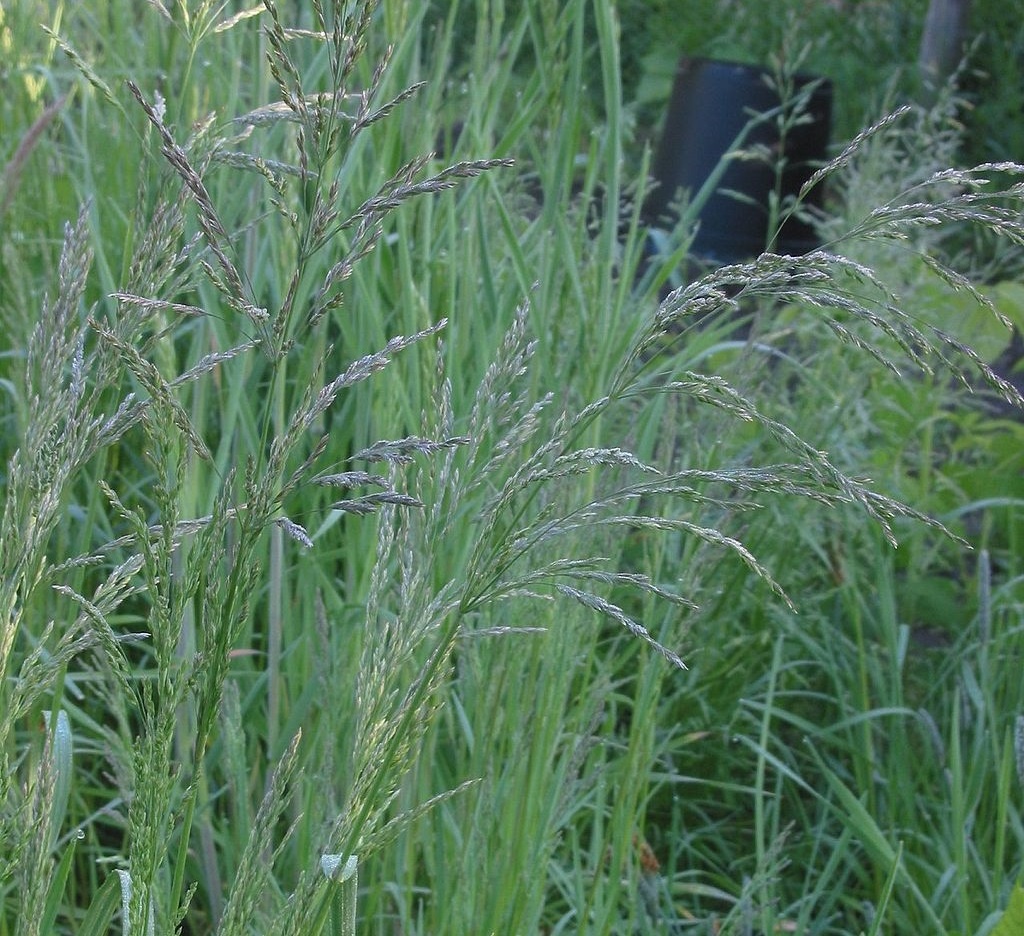 Just like Orchardgrass, how to deal with Rough Bluegrass should really be determined on a case-by-case basis.
Just like Orchardgrass, how to deal with Rough Bluegrass should really be determined on a case-by-case basis.
A few patches that pop up might be something that you can deal with, particularly since it’s generally only an issue in the spring. By thickening up your lawn, you might hardly notice the clumps. But if you have a severe problem with it, you might decide you want to take more serious action.
Bentgrass
This low-growing grassy weed forms light green patches that eventually turn brown in the summer.
As a dense grass, it is often used for putting greens. In a home lawn, it can quickly become an eyesore and even crowd out your desirable turfgrasses.
Bentgrass produces horizontal stems, called stolons, that run along the soil’s surface. It is known to spread rapidly and can completely take over a lawn.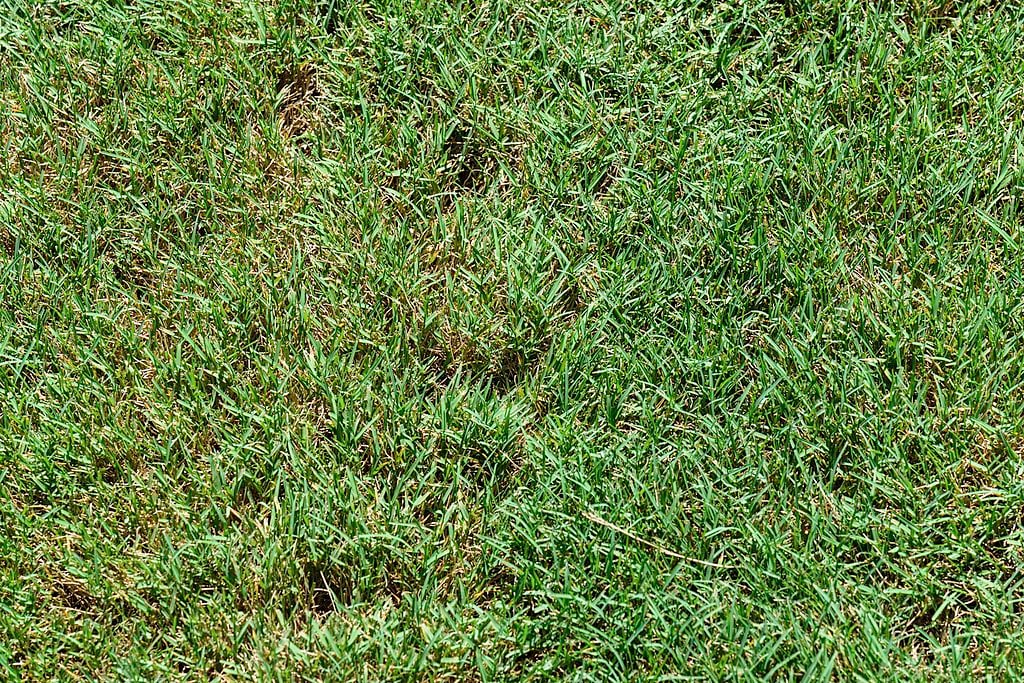 Because Bentgrass is so aggressive, it can be very difficult to control. If you have a lawn in which Bentgrass has taken over, then spraying it with non-selective herbicide may be your only option.
Because Bentgrass is so aggressive, it can be very difficult to control. If you have a lawn in which Bentgrass has taken over, then spraying it with non-selective herbicide may be your only option.
Zoysiagrass
This tough-as-nails grass type is known to be able to stand up to extreme temperature variations and weather conditions, including heat and drought.
It is very dense and develops a hardy root system. It is also incredibly difficult to control.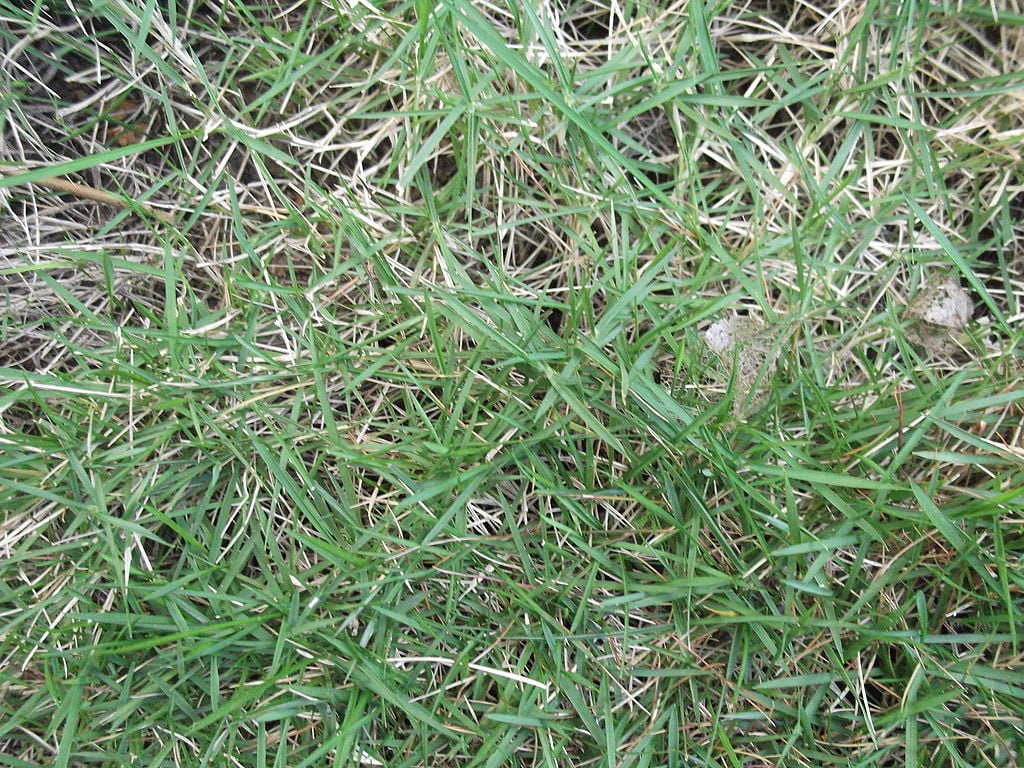 In fact, of the grassy weeds commonly found in lawns, Zoysiagrass is easily the most difficult. Zoysiagrass is also known to be very persistent. You may get rid of it one season only to see it come right back.
In fact, of the grassy weeds commonly found in lawns, Zoysiagrass is easily the most difficult. Zoysiagrass is also known to be very persistent. You may get rid of it one season only to see it come right back.
There is no foolproof way to get rid of this difficult grass and you’ll likely need some help. If you have a severe problem with Zoysiagrass then you need to get in touch with a lawn care professional who can point you in the right direction.
Bermudagrass
Another of the incredibly aggressive grassy weeds, Bermudagrass is dark green, dense, and has a rough texture. It will therefore definitely stand out in a typical lawn.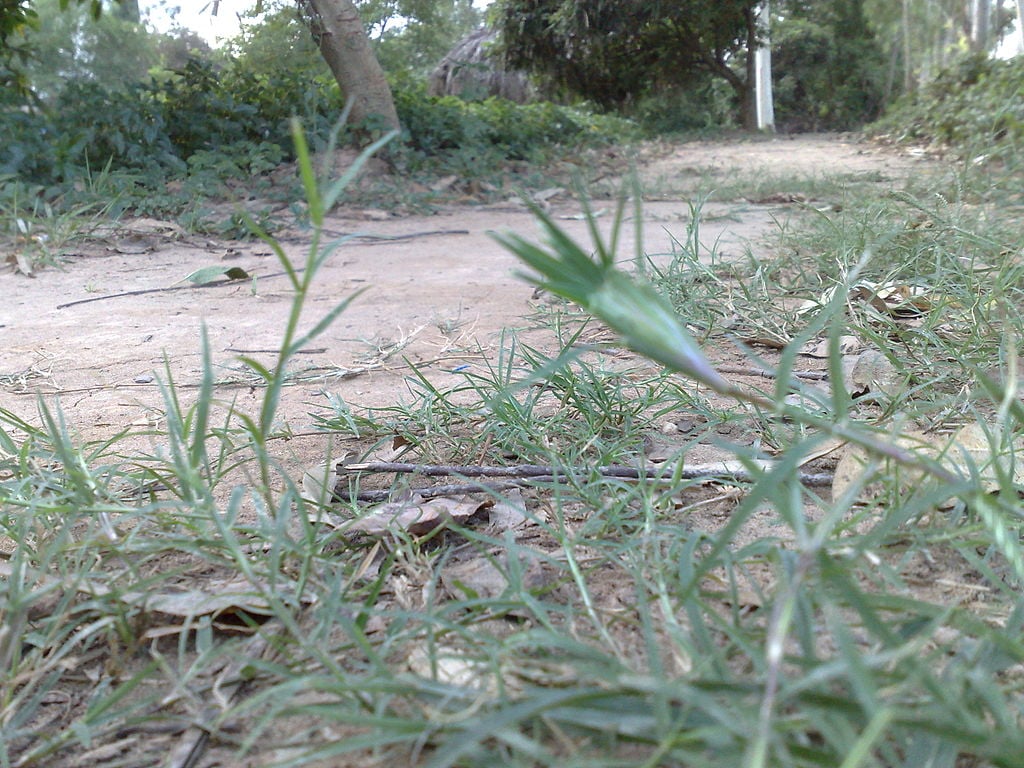 Because it is low-growing, if you keep your lawn slightly taller, you may not notice it very much.
Because it is low-growing, if you keep your lawn slightly taller, you may not notice it very much.
However, in terms of getting rid of it, due to its hardy nature, like Zoysiagrass, it is incredibly difficult to control. It’s important that you get in touch with a lawn care professional who can advise you of your options.
Kentucky 31 Tall Fescue
Kentucky 31, also known as K-31, is a tall grass that is characterized by its coarse appearance.
It has a light green color and tolerates drought well. For many years, K-31 was used as a pasture grass for livestock.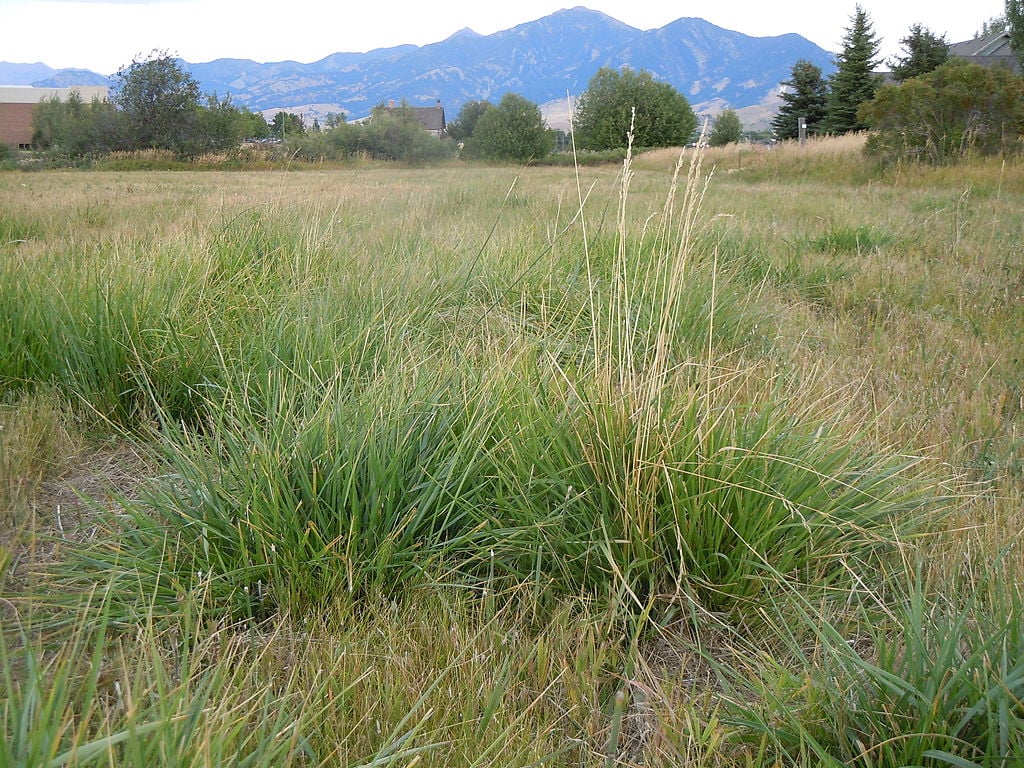 When it comes to getting rid of undesirable K-31, you’ll find this grass type is not quite as resilient and can be moderately controlled.
When it comes to getting rid of undesirable K-31, you’ll find this grass type is not quite as resilient and can be moderately controlled.
Spraying spots in the late summer and reseeding with turfgrass species can help even out your lawn.
Crabgrass
This annual grassy weed is an eyesore that can stand out as being lime green in a healthy lawn. It can also spread rapidly.
Crabgrass is known to spread hundreds of thousands of seeds in its lifespan if left untreated. In fact, just one crabgrass plant can produce up to 75,000 seeds during the course of a single growing season.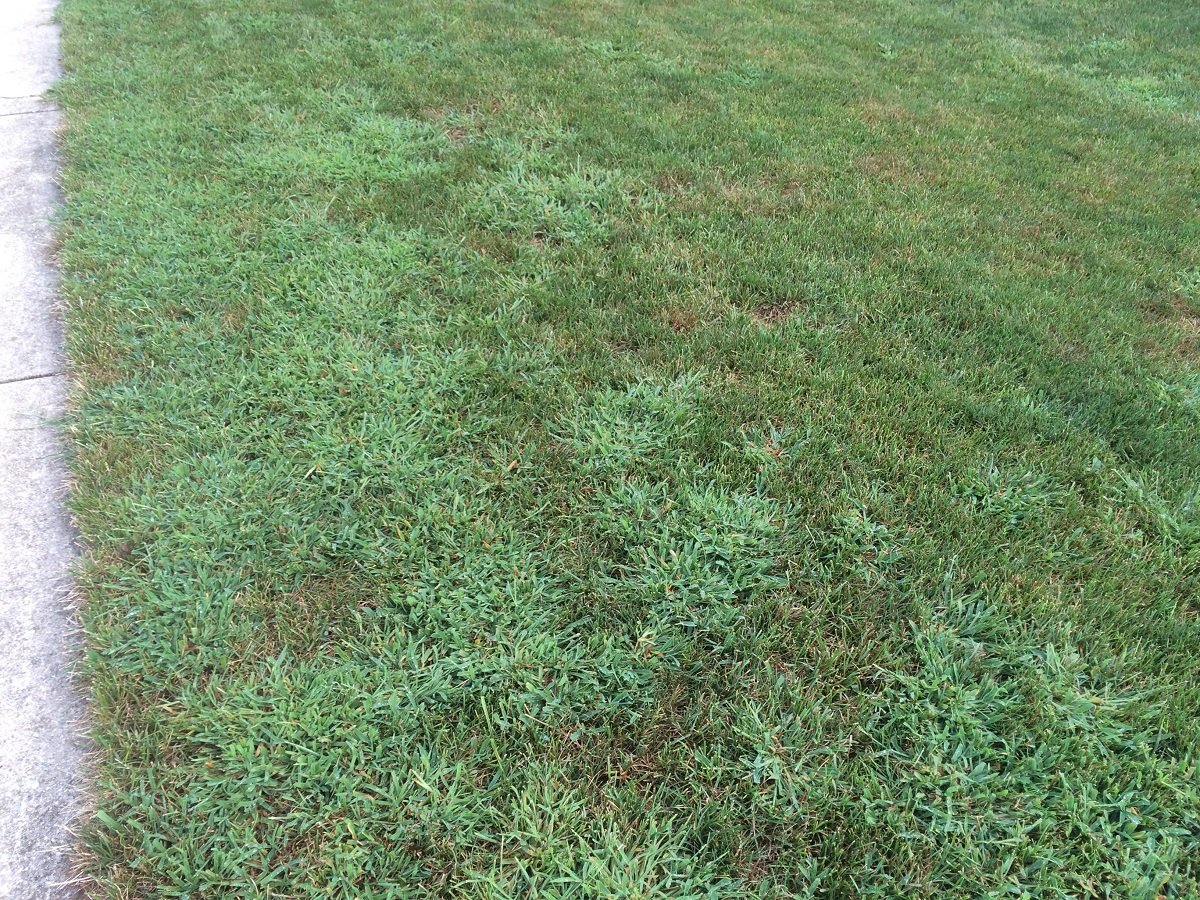 Though crabgrass is a pesky weed, crabgrass control can help contain the problem. The best treatment for crabgrass is using a professional lawn care service that will take a multi-faceted approach, using a commercial-grade product.
Though crabgrass is a pesky weed, crabgrass control can help contain the problem. The best treatment for crabgrass is using a professional lawn care service that will take a multi-faceted approach, using a commercial-grade product.
This includes pre-emergent crabgrass treatment to form a barrier that prevents crabgrass seeds from germinating in the first place. Post-emergent treatment can also control any breakthrough that occurs.
Nutsedge
This grassy perennial tends to prefer moist areas of your lawn and can also grow rapidly in warmer weather.
Nutsedge reproduces via underground tubers, often referred to as “nutlets,” which is where it gets its name.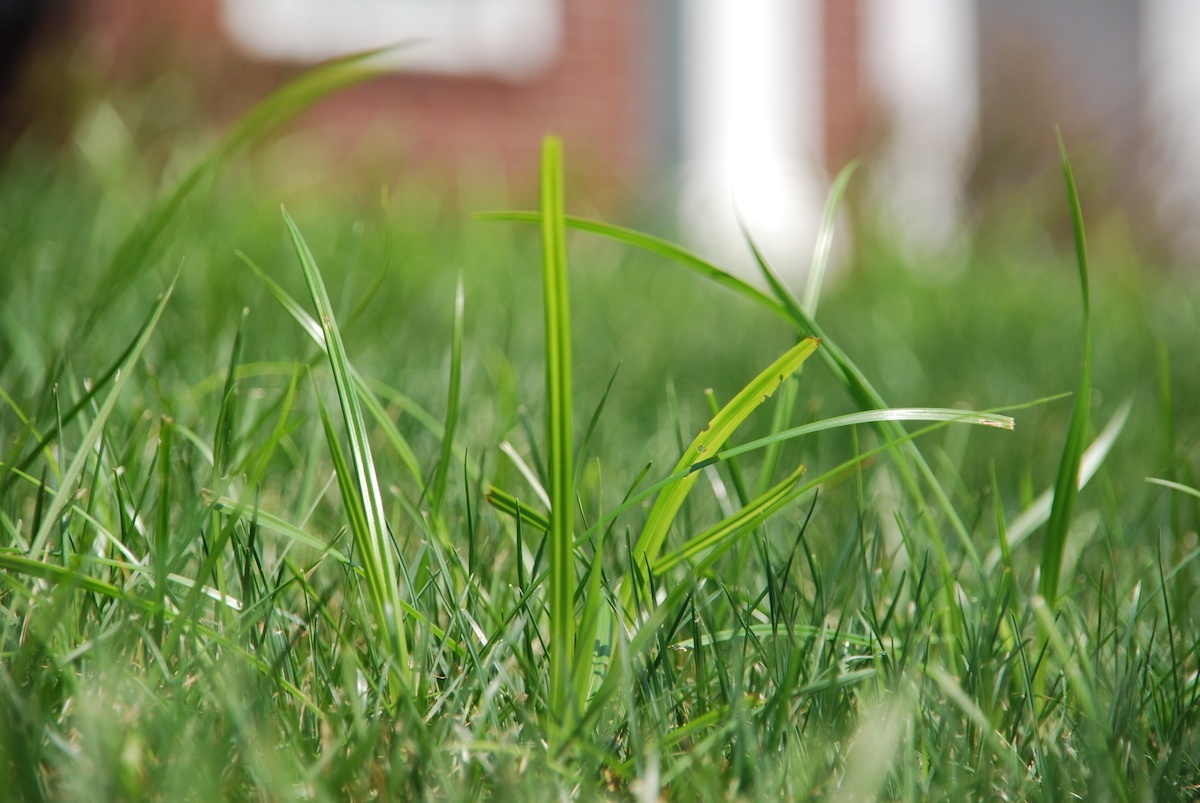 Nutsedge can be managed with weed controls that are specifically designed for its control.
Nutsedge can be managed with weed controls that are specifically designed for its control.
While the product will help it to disappear for a short period of time, repeated applications may be necessary considering its aggressive nature.
Grassy Weeds Identification & Solutions that Work
If you are dealing with grass growing in clumps, then it’s incredibly important that you properly identify exactly what weed it is you’re dealing with. Even some of the 8 grassy weeds mentioned above can be commonly mistaken for one another.
By misidentifying the weed you’re dealing with, you won’t know the best approach for control.
Having a lawn care professional visually inspect your lawn is key. Of course, you want to find a company that is going to give you honest and realistic information. There are some companies that will try to sell you on services, even if they’re not in your best interest.
For instance, if you’re dealing with a bad case of Zoysiagrass or Bermudagrass, aeration and overseeding are only going to cause this weed to spread even more. You want to find a company that is going to provide you with honest recommendations, even if it means they can’t help you (and will mean less revenue in their pocket).
In the very worst of cases a total lawn renovation may be necessary and not all lawn care companies offer this.
In the end, it comes down to a case-by-case approach guided by the recommendations of an honest professional. A company you can truly trust may not always deliver the news you want to hear, but they’ll tell you honestly what’s best for your lawn.
With the right care for your lawn, you’ll gain valuable peace of mind. If you’re interested in having your lawn inspected and its health assured, contact us for a free quote or give us a call at 833-JTE-TREE.
Images sources: rough bluegrass, bentgrass, zoysiagrass, bermudagrass, tall fescue




